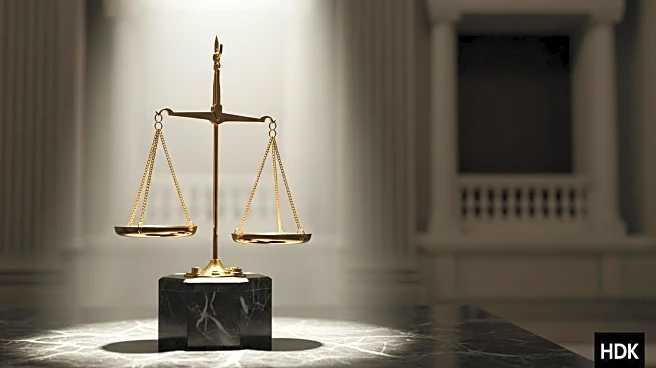What's Happening?
The Justice Department is preparing to seek an indictment against former FBI director James Comey for allegedly providing false testimony to Congress regarding his involvement in the investigation of efforts to influence the 2016 presidential election. The indictment is expected to be filed before the five-year statute of limitations expires. The investigation focuses on Comey's testimony on September 30, 2020, concerning the FBI's handling of the 'Crossfire Hurricane' probe, which investigated potential collaboration between Russia and President Trump's 2016 campaign. The decision to pursue charges comes after President Trump replaced the U.S. attorney in the Eastern District of Virginia, Erik Siebert, who had previously declined to prosecute Comey due to insufficient evidence.
Why It's Important?
The potential indictment of James Comey is significant as it underscores ongoing tensions between the Justice Department and political figures associated with the Trump administration. If pursued, the charges could have implications for the credibility of the FBI and its past investigations, particularly those involving President Trump. The move also highlights the administration's efforts to address perceived political adversaries, which could further polarize political discourse in the U.S. The outcome of this case may influence public trust in federal institutions and the judicial process.
What's Next?
Prosecutors in the Eastern District of Virginia are expected to present their case to a grand jury soon. The grand jury will decide whether to approve the indictment, which requires the agreement of at least 12 members. If the indictment is approved, it could lead to a trial where Comey would face charges of lying to Congress. The case may also prompt reactions from political leaders and civil society groups, potentially influencing public opinion and future legislative actions.
Beyond the Headlines
The pursuit of charges against Comey raises questions about the ethical and legal dimensions of using the criminal justice system to address political disputes. It may set a precedent for how political figures are held accountable for their actions while in office. Additionally, the case could impact the long-term relationship between the executive branch and federal law enforcement agencies, affecting their operational independence.









